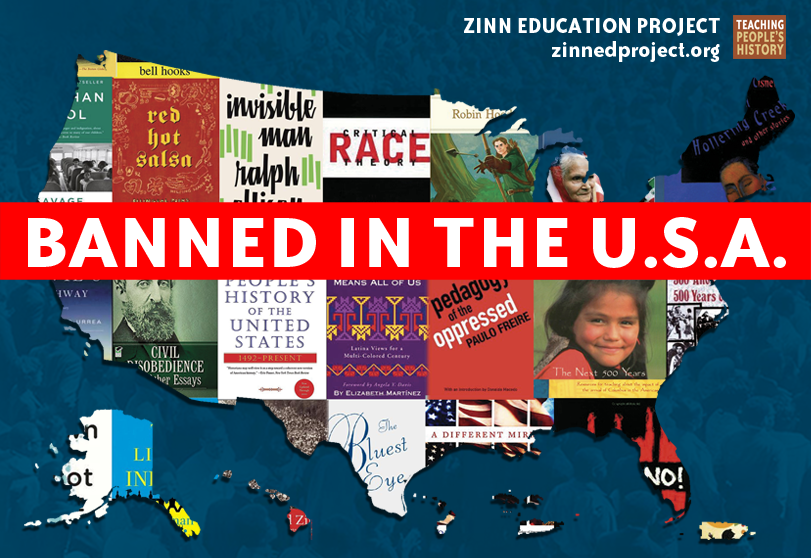
This year during Banned Books Week 2022 (Sept. 18-24), not only are books being banned, but also the right to teach about racism and LGBTQI identity — essentially placing thousands more titles off limits. Official lists of banned books, while useful, are a drop in the bucket.
The Oklahoma law HB 1775, passed in 2021, restricts teaching that could make a student “feel discomfort, guilt, anguish or any other form of psychological distress on account of his or her race or sex.”
What book that looks honestly at U.S. history does not risk causing some anguish or discomfort for the reader?
Proponents of the bills argue they are protecting children from feeling guilty and from propaganda.
In truth, what concerns the right is young people learning to ask critical questions about our society, how to organize for social change, and about the power of interracial solidarity.
In addition to banning books and curriculum, the right threatens teachers who pledge to teach truthfully. They often name particular curricula they seek to ban. For example, the Kennewick School Board in Washington passed a policy in August that prohibits teaching that the United States is fundamentally or systemically racist. In school board discussions, there were references to ensuring that the wording would bar specific curricula, including the 1619 Project and the Zinn Education Project.
In Oklahoma, the state has gone beyond attacking individual teachers to punishing entire school districts. Lawmakers’ intent is to stifle discussions about race and justice in every classroom in the state. As Jeremy C. Young and Jeffrey Sachs explain in the Tulsa World,
By wielding censorious punishments on school districts, students, and teachers for imagined violations, [Oklahoma state] has undermined educational freedom on an unprecedented scale.
The recent attacks draw on the same language used over the past decade in attempts to ban people’s history in K–12 classrooms in Tucson, Arizona; Arkansas; and Indiana. In those cases, outlined below, grassroots efforts helped to protect students’ right to learn.
Attempts to Ban People’s History Books in the Last Decade
Tucson
In 2012, the Tucson Unified School District decided to abolish the highly successful Mexican American Studies (MAS) Program and called for an immediate removal of all program books, including Rethinking Columbus, Pedagogy of the Oppressed, Occupied America, and Five Hundred Years of Chicano History in Pictures. The Zinn Education Project helped amplify this issue, raising awareness about the threat to all people’s history curricula. Five years later, in August of 2017, a federal judge ruled that the state of Arizona violated the constitutional rights of students by eliminating the program. Read about this victory in a Rethinking Schools interview with Mexican American Studies program instructor Curtis Acosta.
Indiana
In 2013, the Associated Press learned of Indiana Governor Mitch Daniels’ orders to ban the use of not just A People’s History of the United States, but any of Howard Zinn’s books in K–12 classrooms shortly after Zinn’s death in 2010. The Zinn Education Project helped give national visibility to this attempt at censorship and the need for academic freedom in all grade levels.
Arkansas
In March of 2017, an Arkansas state representative introduced legislation to prohibit teachers in all public schools or state-supported charter schools from including any books in their curriculum by — or even “concerning” — Howard Zinn.
In response, the Zinn Education Project offered to send free copies of a book by Zinn and A People’s History for the Classroom lessons to any Arkansas middle or high school teacher or school librarian requesting them. In just a few days, we were flooded with requests. Generous donations allowed us to send more than 800 people’s history books to classrooms and libraries all over the state. The bill never made it out of committee.
– – –
In each case, the Zinn Education Project played a key role in making these stories public and defending the rights of teachers and students to teach and learn.
What Can We Do?
Historian Kidada E. Williams reminds us that teachers must work collectively to defend the right to teach truthfully. In the clip below from the Howard Zinn Centennial she notes,
One of the things that we can learn is that there is power in saying that people’s lives, freedoms, and futures matter, and that those declarations inspired people across the generations to collective action.
They still have that power to inspire people to build a more just world today. There are some interconnected lessons that we can learn from our predecessors, and this is something that teachers can take in mind.
One is that fighting for freedom and justice is best done collectively. That fits the Zinn Education Project so well. Teachers can fight and win by working with other educators, with librarians, with students and activists. Primarily, I think, by accessing the historical records. We have to understand what the laws say and we have to be strategic as we fight them. And so sometimes it means considering: Do the laws prohibit us from teaching historical records cataloged by the Library of Congress, by the National Archives, by state archives?
These institutions, along with the Zinn Education Project, are our partners in the struggle, and they provide records and lessons that let the students see the records for themselves. We also fight these unjust laws by reaching out to lawmakers, by running for office, and by direct action protests.
Support Studying People’s History
For Banned Books Week, make sure more students read banned books and learn the history missing from textbooks. With your donation to the Zinn Education Project, we can equip thousands more classroom teachers to bring people’s history to millions of students.

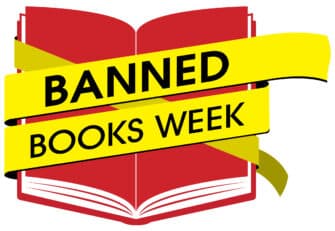
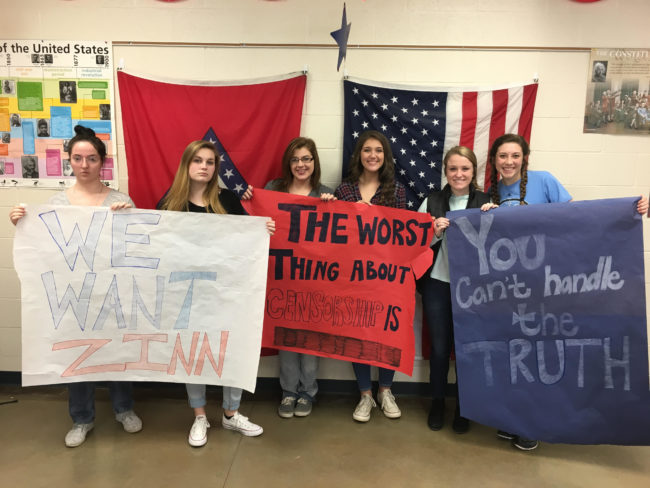
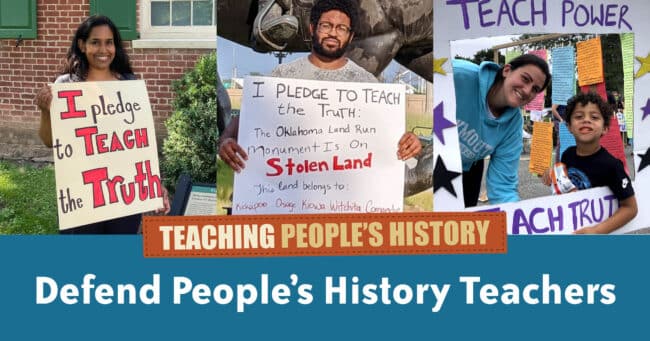

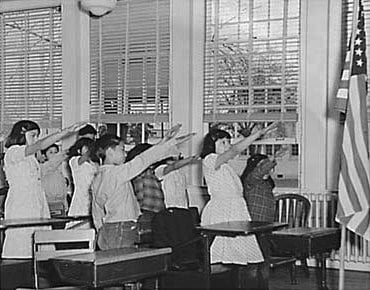
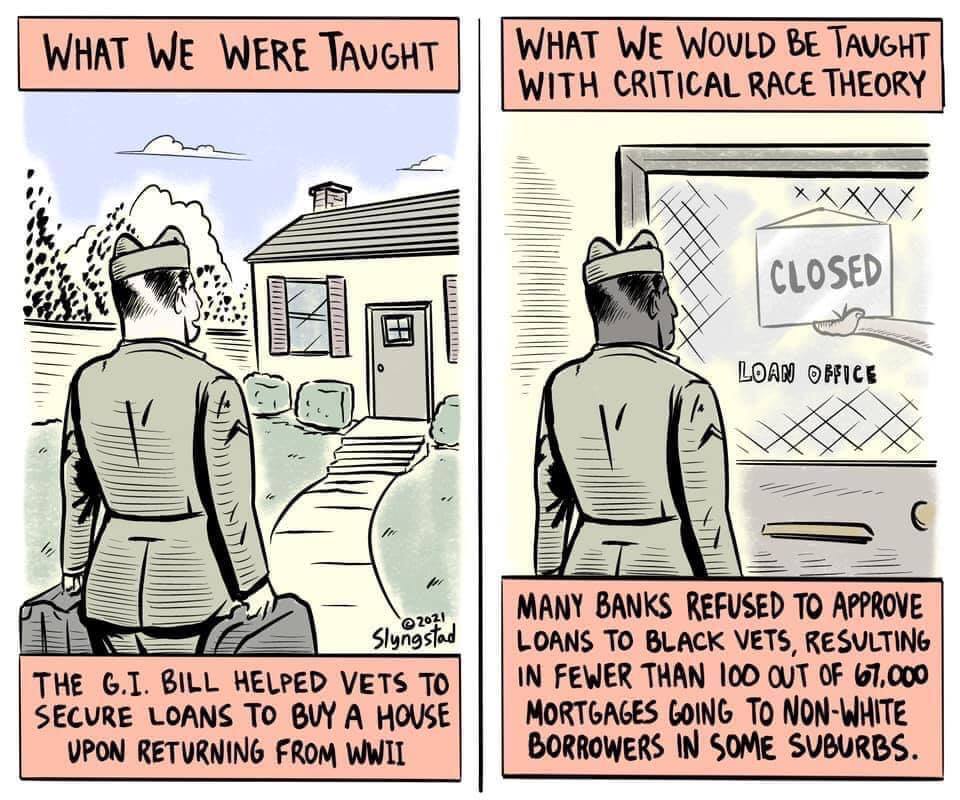
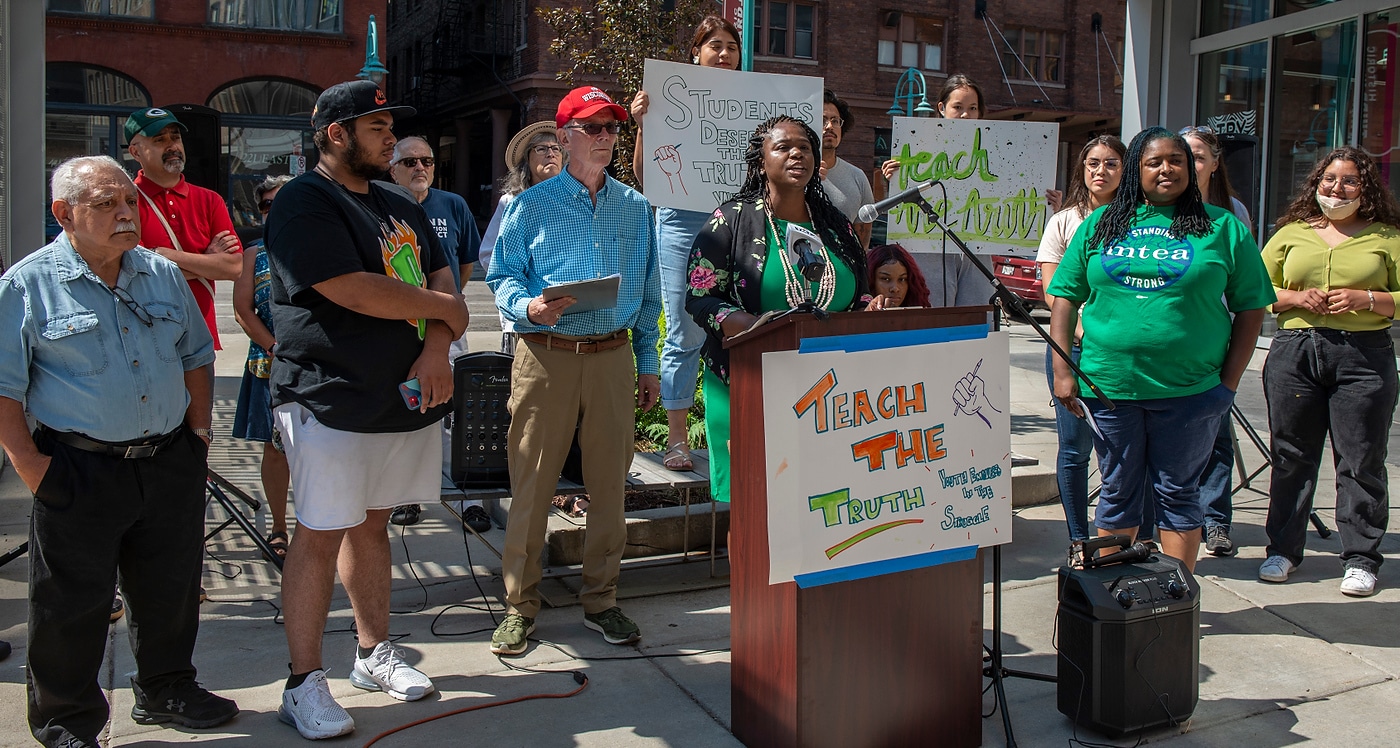





Twitter
Google plus
LinkedIn